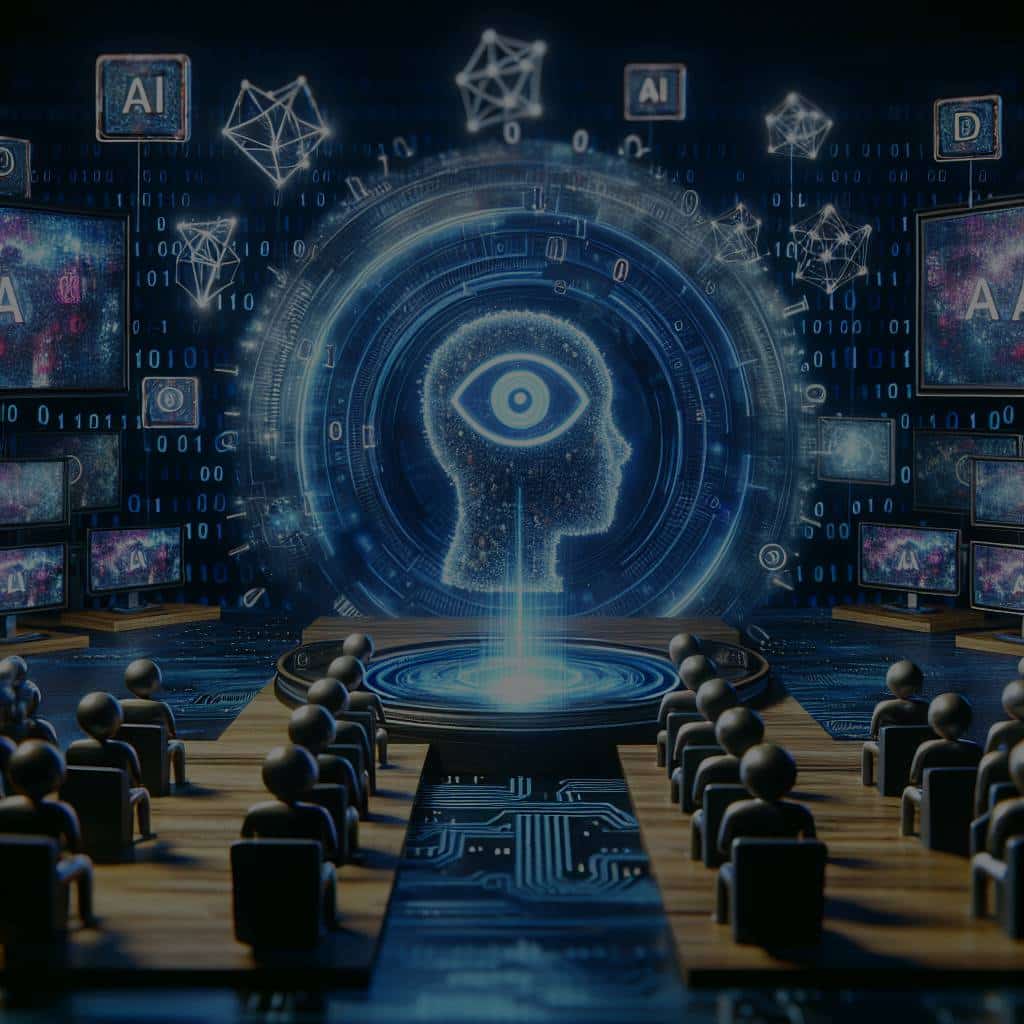How Is AI Influencing the Quality of Streaming Video Services?

There’s a technological revolution unfolding before our eyes, with Artificial Intelligence (AI) at its forefront. From self-driving cars to Siri on your iPhone, AI is leaving its imprint in every conceivable industry. However, the impact of AI in the video streaming sector has been particularly significant. The technology has been instrumental in enhancing video quality, promoting user experience, and boosting the overall efficiency of streaming media services. Let’s delve into the fine details of how AI is shaping the future of video streaming.
AI and Video Quality Enhancement
Just a few years back, you had to bear with grainy videos buffering endlessly, but not anymore. Thanks to AI, video streaming services are now offering unparalleled video quality, making your viewing experience smoother and more enjoyable.
In parallel : What Impact Will In-Memory Computing Have on Real-Time Data Processing?
Artificial intelligence algorithms are being employed to improve the quality of videos streamed over the internet. These complex algorithms analyze the video content in real time, identifying and correcting any errors or distortions. Moreover, they adjust the video quality based on network bandwidth, making sure your video doesn’t stop to buffer every few seconds.
AI also enables adaptive bitrate streaming (ABR), a technique that adjusts the quality of a video stream in real time according to network conditions and CPU utilization. This means no more frustrating lags or interruptions during your favorite shows or live sports broadcasts.
Also read : Explore thrilling treasures inside the american mystery box
To top it all, AI has made 4K and 8K streaming a reality, offering a truly immersive viewing experience. It’s not a stretch to say that AI is redefining the standards of video quality in the streaming media industry.
AI-powered Content Personalization
AI isn’t just making videos look better; it’s transforming the way content is delivered to you as well. Netflix, Amazon Prime, YouTube – all employ AI-powered recommendation systems that understand your viewing habits and suggest content that aligns with your preferences.
Artificial intelligence algorithms analyze a plethora of data points, including your previous viewing history, ratings given to different shows, time spent on various genres, and even navigation patterns within the application. This helps streaming services to curate a personalized list of recommendations, enhancing your overall viewing experience.
In the era of binge-watching, content personalization is of immense value. AI saves you the time and effort of scrolling through hundreds of titles, presenting you with options that you are more likely to enjoy and engage with.
Furthermore, AI-driven user segmentation allows streaming platforms to create and promote content tailored to different user groups. This not only boosts user engagement but also assists in targeted marketing.
Predictive Analysis and Network Optimization
In the video streaming industry, understanding user behavior and predicting future trends play a crucial role. AI’s predictive analysis capabilities have come as a game-changer in this regard.
AI algorithms can analyze vast amounts of user data and predict viewing trends. This helps streaming media services to make informed decisions about content creation, acquisition, and distribution. Furthermore, predictive analysis also aids in forecasting network congestion and planning bandwidth allocation.
By accurately predicting peak viewing times and potential network bottlenecks, AI allows for proactive network management. This ensures optimal bandwidth utilization, preventing any dips in video quality during peak times.
Moreover, AI’s machine learning algorithms can learn from past network performance data, continuously improving network efficiency and reliability. This translates into a smoother and more seamless streaming experience for you.
AI in Content Creation and Production
The influence of AI isn’t confined to content delivery alone. It’s reshaping the content creation and production process as well.
Artificial intelligence is being used to automate the editing process, thereby reducing the time and effort required in post-production. AI can identify and edit out unwanted sections from a video, add subtitles, and even adjust the color and lighting based on the scene.
Moreover, AI’s machine learning algorithms can analyze past successful content and provide valuable insights into what works and what doesn’t. This can guide content creators in crafting stories that resonate with the audience, thereby increasing viewer engagement.
Furthermore, AI is enabling the creation of high-quality, engaging content at a fraction of traditional costs. For instance, AI can generate realistic visual effects that were previously possible only with expensive CGI techniques.
AI and Cybersecurity in Video Streaming
As the video streaming industry expands, so does the threat of cyberattacks and piracy. Here again, AI comes to the rescue by bolstering the security of streaming services.
AI-powered security systems can detect suspicious activity in real time, preventing unauthorized access to content. Furthermore, advanced AI algorithms can identify and track down pirated content on the internet, protecting the rights of content creators and distributors.
In addition, AI can help streaming services comply with various data protection regulations by automatically anonymizing user data. This not only safeguards user privacy but also boosts user trust in the platform.
In conclusion, it’s evident that AI’s impact on the video streaming industry is profound and far-reaching. From enhancing video quality to personalizing content, optimizing network performance, aiding content creation, and bolstering security, AI is revolutionizing the entire streaming experience. As AI technology continues to evolve, we can look forward to even more exciting innovations in the video streaming space.
AI in Live Streaming and Real-Time Communication
The role of Artificial Intelligence isn’t only limited to on-demand video streaming. It’s also making a big splash in the world of live streaming and real-time communication. In fact, many popular social media platforms are now incorporating AI to offer users a high-quality, real-time streaming experience.
AI’s sophisticated algorithms can optimize live streaming in different ways. Firstly, it can automatically adjust video quality based on each viewer’s current network conditions – a critical feature for maintaining smooth, lag-free live streams. AI algorithms can analyze the viewer’s bandwidth in real-time and alter the video quality accordingly, ensuring a seamless viewing experience regardless of network fluctuations.
Secondly, AI is also used to enhance the audio quality of live streams. By leveraging machine learning and computer vision techniques, AI can reduce background noise and enhance the speaker’s voice. This is especially beneficial in crowded environments or for broadcasts with poor audio conditions.
Moreover, artificial intelligence is also being used for real-time video analytics during live streams. This includes automatic highlight generation, scene detection, and even sentiment analysis based on viewer reactions. Such real-time insights can greatly enhance the engagement and interactivity of live streams, offering a more immersive user experience.
In addition, AI-powered video encoding techniques are being used to ensure that the video is compressed without losing its quality, making it possible to deliver high-quality live streams even with limited bandwidth.
Clearly, AI is playing a critical role in transforming the live streaming and real-time communication sector, making it more dynamic, interactive, and user-friendly.
AI’s Future in the Video Streaming Industry
Looking at the current trends, it’s clear that Artificial Intelligence will continue to play an instrumental role in the media entertainment industry, especially the video streaming sector. As the technology evolves, we can expect AI to bring even more groundbreaking changes that significantly improve the user experience.
For one, AI’s capabilities in data analysis and machine learning will further personalize the viewing experience. In the future, AI algorithms may be able to predict viewer preferences not just based on viewing history, but also based on factors like mood, schedule, and even biometric data.
Furthermore, as 5G technology becomes more prevalent, AI will play a crucial role in managing the massive amount of data involved in streaming high-quality videos. AI’s predictive analysis capabilities will ensure optimal data management, avoiding network congestion and ensuring seamless video streaming even at peak times.
AI is also expected to play a significant role in the creation of virtual reality (VR) and augmented reality (AR) content, which is set to be the next big thing in the entertainment industry. By analyzing viewer behavior, AI can create highly immersive and personalized VR and AR experiences.
On the production side, AI could potentially automate entire aspects of video production, from scriptwriting to video editing, thereby significantly reducing production costs while increasing the pace of content creation.
In conclusion, it’s safe to say that AI has become an integral part of the video streaming industry, and its influence will only continue to grow. With its ability to enhance video quality, personalize content, streamline production, and ensure robust security, AI is set to revolutionize the streaming experience in ways we can only begin to imagine.
